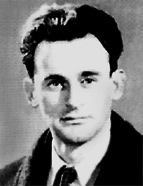

The outbreak of World War II interrupted the young Silbert's studies and academic projects for more than half a decade, as it did for millions of others. He spent much of this dark period in a prisoner-of-war camp in East Prussia, Stalag I A in Stablack. This camp, which housed students and aspiring army officers, was the subject of negotiations by the Vichy regime to transform it into a "university." A "university" sui generis that Vichy aimed to transform into a place for training cadres for his Revolução Nacional [National Revolution] met with limited success, despite the camp's proximity to the German University of Königsberg, which supplied books and even sent lecturers. Albert Silbert wrote two articles about this peculiar experience, published in the Revue d'Histoire de la Deuxième Guerre Mondiale entitled Le camp des aspirants [The midshipmen's camp] . These were later republished in 1991 in the work Le camp des aspirants pendant la Deuxième Guerre Mondiale : 1939-1945 [The midshipmen's camp during the Second World War: 1939-1945], published by the Amicale du camp des aspirants. This was likely one of his few forays into 20th-century history, as in these texts he presents himself more as a historian than as a protagonist, attempting to distance himself from his personal experience and adopt a more detached perspective on that painful period. He would later recall some of the more personal aspects of his time there, noting that it was in that prison camp and its "university" that he first taught, with languages being one of the main subjects. It was also in the camp that he first encountered the Portuguese language and learnt about Portugal through a comrade from the same regiment, the son of emigrants, who taught Portuguese using Otto Sawer's German method. Silbert considered this encounter to be a significant moment in shaping his future.
This work is financed by national funds through FCT - Foundation for Science and Technology, I.P, in the scope of the projects UIDB/04311/2020 and UIDP/04311/2020.
